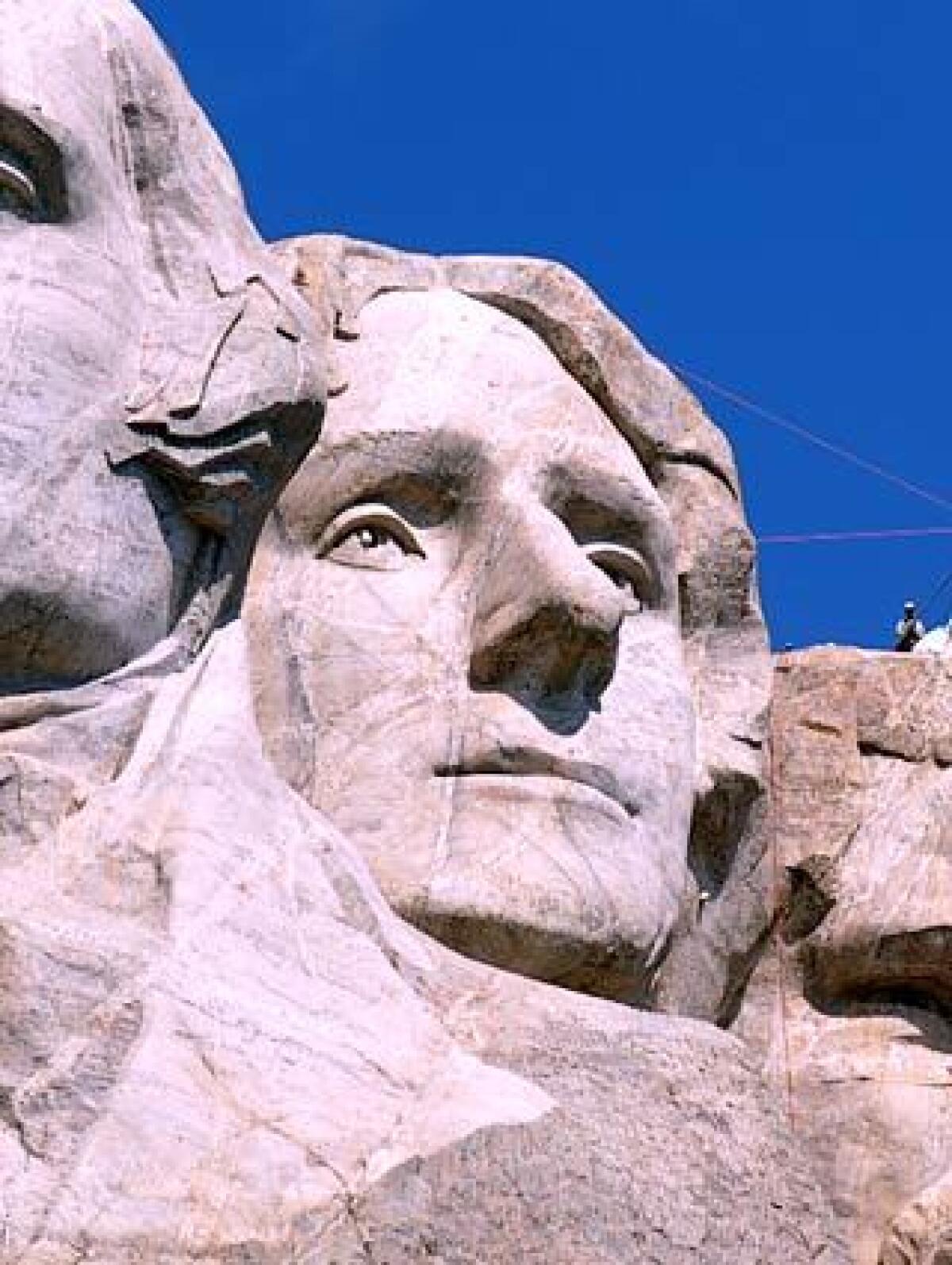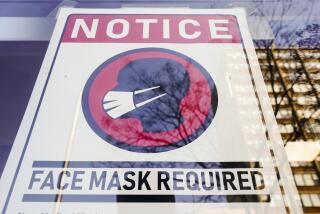Op-Ed: Would the guy who spelled out our inalienable rights wear a mask? You bet.

Would Thomas Jefferson wear a mask? On the face of it, this is a ludicrous question, since Jefferson is busy being dead, time machines are not yet available, and dragging Jefferson’s legacy into our current encounter with the coronavirus in Donald Trump’s America feels both irrelevant and irreverent. Then again, who better to query, when masks become an issue of liberty, than the man who defined our inalienable rights?
President Trump has made not wearing a mask a political statement. We assume Trump does not like the way he looks with a mask, so he is asserting his vanity. More significantly, he has urged his most ardent supporters to toss away their masks and join him as a warrior prepared to take risks on the coronavirus battlefield. Those who don’t are either cowards or have been duped by the fake-news media into believing that the pandemic, much like climate change, is a serious, ongoing threat, when in fact it is a hoax that will be exposed as such during the coming summer months, when it will melt away.
We shall see. Unlike climate change, which is a long-range existential threat, the pandemic is raging now. Its impact in terms of cases and casualties requires no crystal ball. Trump has made a bet that will be proven right or wrong before the November elections. If the former, all the scientific experts will be exposed as weak-kneed charlatans, and Trump will be able to chastise them in his second inaugural in January. If the latter, his handling of the COVID-19 crisis will be exposed as an epic failure, perhaps the greatest lapse of presidential leadership in United States history. Again, we shall see. If you don’t wear a mask over the ensuing months, you endorse the first option. If you do, the latter.
The Trump version of masks is burdened with one basic misconception. A mask provides only minimal protection for the person wearing one. It provides maximum protection for everyone else in your vicinity. In that sense, not wearing a mask is not a statement of personal courage, but rather a statement of personal indifference to the health and fate of everyone else. The pandemic creates a distinctive political context that forces all citizens to make a public declaration on the classic question of individual rights versus social responsibilities. Whether you do or do not wear a mask is your answer to that question.
Here is where Jefferson ought to be consulted. He was an inveterate opponent of powerful government. He made it clear in those magic words “We hold these truths to be self-evident” that individual rights must remain the sovereign and sacred core of the American Creed. In that sense, it seems he would be the last person to endorse any federal or state mandate for obligatory quarantines, social distancing or masks. In modern terms, he was a dedicated libertarian.
But when asked to describe his deepest political conviction, and he was often asked to do just that, the answer was always the same. It was “self-government.” He harbored a profound faith in human nature, believing that ordinary citizens would freely choose to internalize their obligations to others. No outside form of government was necessary because we all carried inside ourselves a built-in governing principle.
It was a highly optimistic, quasi-utopian ideal. But it strikes me as a worthy ideal to strive for in our current crisis. Our rights as individuals and our responsibilities as citizens coexist. Most of the time, rights can and should prevail. In times of crisis, say a family emergency or a major threat to national security, responsibilities should reign.
Those who wear masks do not need government to tell them what to do. They recognize that the pandemic makes the choice, to echo Jefferson, self-evident.
Joseph J. Ellis is emeritus professor of history at Mount Holyoke College. His latest book is “American Dialogue: The Founders and Us.”
More to Read
A cure for the common opinion
Get thought-provoking perspectives with our weekly newsletter.
You may occasionally receive promotional content from the Los Angeles Times.










